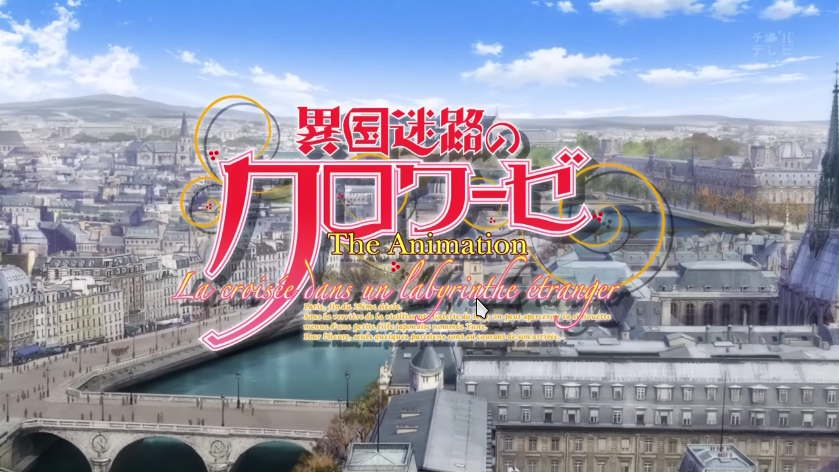
I don’t often get excited enough about an upcoming show to fish out and watch PVs. And when I do, I don’t often get ignited enough to decide that I must watch this show and that I can’t wait. And when that happens and I inadvertently set my blood ablaze with unshakable anticipation, it is not often that the show itself manages to deliver to my inevitably heightened expectations.
Ladies and gentlemen, Ikoku Meiro no Croisee’s first episode is everything I could have hoped for – and more.
With the indulging in European design and architecture and the commitment to making the show look picturesque, coupled with the unembarrassedly Aria-esque tunes that dominated the BGM , the correlation to the venerable Aria series of old is unmistakable. They’ve got the whole package. Enhanced, even, by the modernized animation and production requisite of any quality shows nowadays. I spoke briefly on the importance of wrapping in my OreImo post, and in that regard Ikoku has cleanly hit the bulls-eye dead-center here. I would probably watch and listen to this pretty thing even if the content turned out to be lackluster.
And if episode one is any indication, Ikoku Meiro no Croisee is anything but lackluster. While Aria took it easy for a long time and developed its mood and characters over its long three-season run, Ikoku delved swiftly for the heartstrings. In spite of the careful and meticulously measured pace, episode one manages somehow to fling out a tangible conflict and draw it all the way through to a satisfying resolution. And as if that isn’t already awesome enough, there is a very interesting theme underpinning the whole thing that I suspect will become the defining feature of this show moving forward – cultural clash.
Let’s take a walk-through.

Little Yune makes her screen debut in an incredibly elaborate (and beautiful) kimono, complete with all manner of fancy trinkets and fabric that flared red against an elegant, homely street of brown and gray. Notice the clearly heard trotting of her wooden sandals and the hurried but timid rhythm of the swift small steps she is forced to take in her restrictive garb. This show is subtly meticulous about such things. So here we have an intricately dressed little girl looking (and sounding) just peculiarly out of place upon a charming Parisian backdrop. Lovely opener.
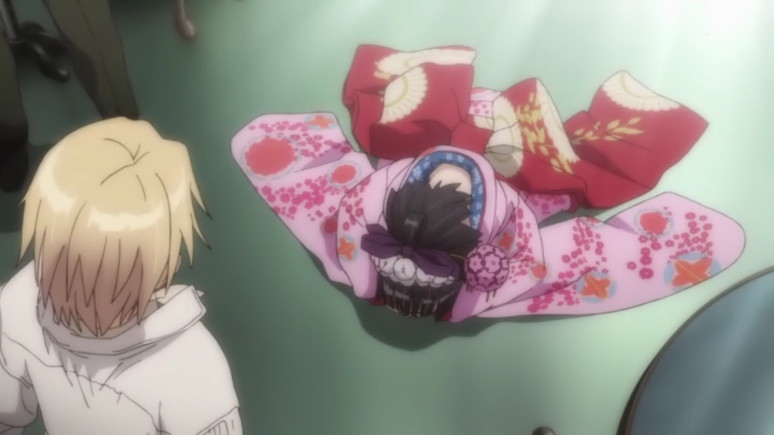
And then a peculiar greeting from our little Yune. The camera on the flowing sleeve and the soft rustle draw us towards appreciating her grace in executing the elaborate bow. But in Claude’s bewildered eye it must all have looked absolutely insane.
“How could you be fine with that?
not understanding the language,
blindly serving people without being able to speak your own thoughts
I wouldn’t be able to deal with that.
I cannot believe them. Both Yune and her countrymen.”“Claude…”
“Yune doesn’t understand anything I said anyway right?”
Encountering something you (perhaps justly) fail to understand. Hinging the credibility of a people on that unbelievable trait. Being carelessly unchecked about voicing your disgust. Claude is tracing the footsteps of many a folk I see living in a multicultural environment. The fact (as established later in the episode) that Claude is really a good man capable of finding, admitting to and making up for his mistakes, and that Yune really understood French all along, make this scene’s message all the more powerful and juicy.
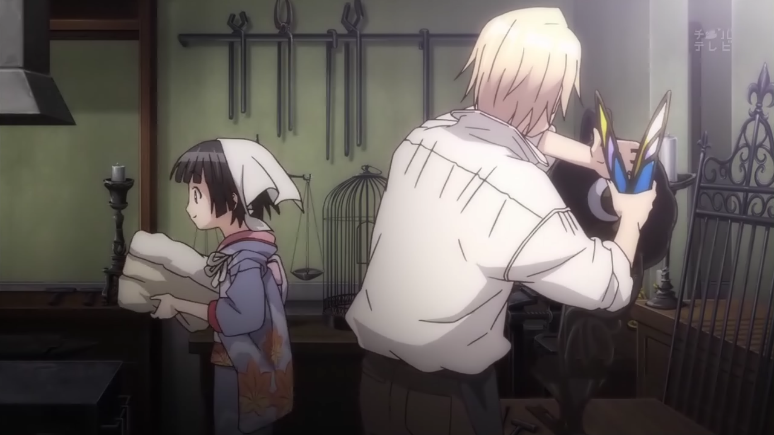
More tiny footsteps, and so many gracefully demure motions.
(Man Yune is so damn cute. So Japan chooses to represent herself with an adorable and earnest loli. Cheaters)
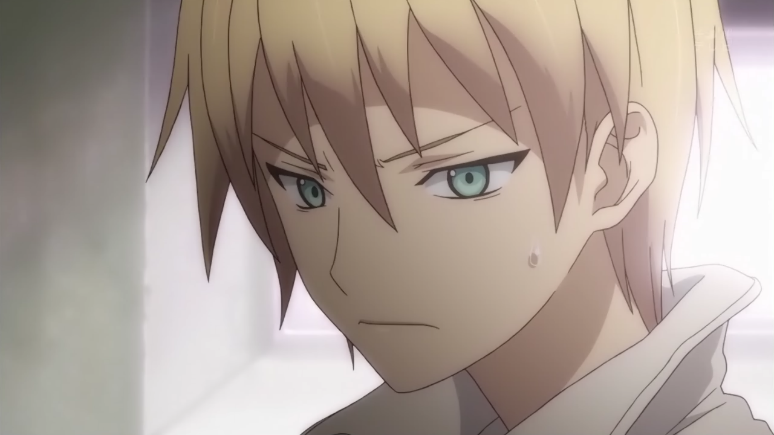
Claude feeling ired by her helpful little gestures. The all too familiar feeling of frustration at finding the target of your displeasure more agreeable than you’d want.
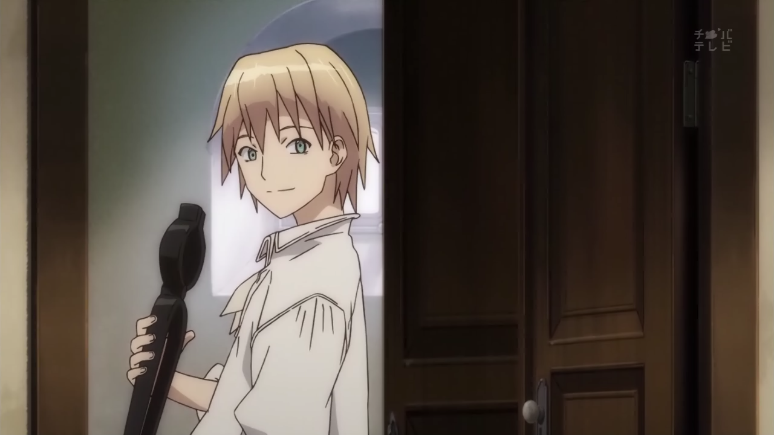
And then relenting. Yune might be the perfect little Yamato Nadeshiko, but I like this man Claude. Plenty of people, myself occasionally included, find it hard to reverse an initial, hasty judgment, even to themselves.
And of course, as things begin to climb uphill and Claude begins to open up and act friendly, disaster strikes.
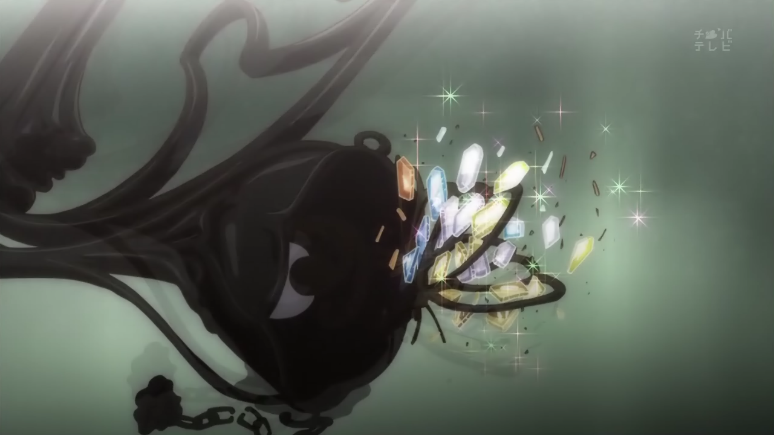 (Lesson learned: never chase after random shotas)
(Lesson learned: never chase after random shotas)
“It’s not your fault, but you just cannot be our sign.
Just like how those long sleeves serve no purpose in France”
A somewhat gracious assessment perhaps, but that bitter comment about the meaningless sleeves makes the score clear. The vipers of prejudice have clenched again.
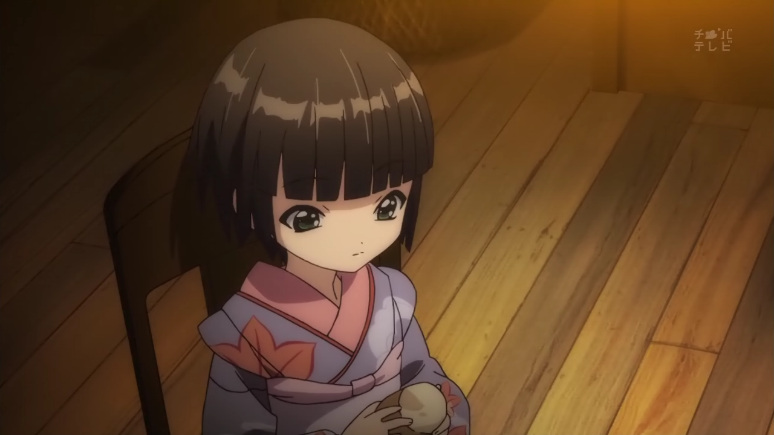
Yune losing her appetite over her guilt. Yune is such a good girl. Almost unrealistically good. The question of why and how her family could bear to send her abroad alone to “live as a maid” will need answering. I demand it.
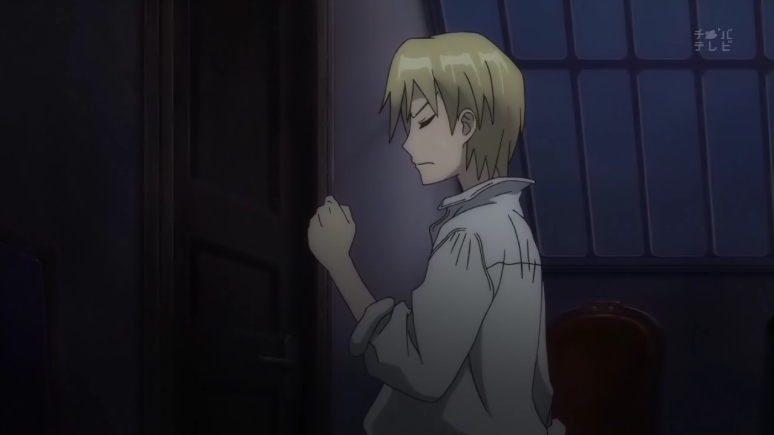
Claude on the other hand is perhaps a little more realistically good. With clear flaws and mitigating good that really makes him a character I can like and approve of. Chewing down your pride and sense of self-justice like that is simply heroic.
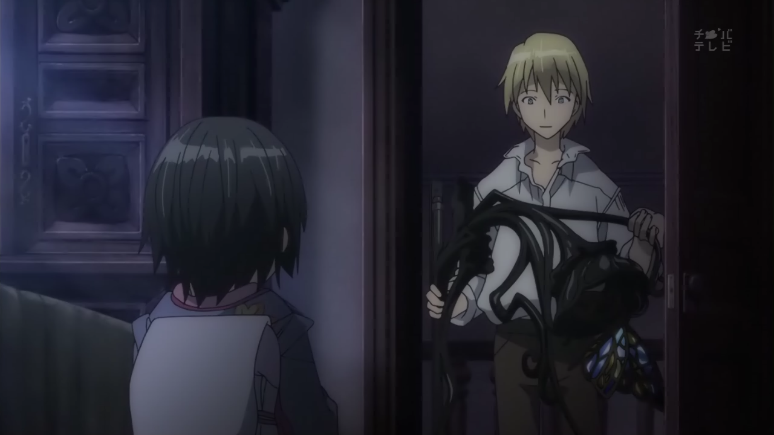
“Glass is bound to break someday. And this design isn’t too bad either. So don’t worry about it anymore. I’m going to go set this up now. You should get some sleep. You must be tired.”
Such kind words :)
Yune though seemlingly only found her guilt intensified. And here’s where the wind picks up and we swirl forward towards the climax, where Claude takes and sells Yune’s beautiful Kimono oblivious to its true value, and confronts her when made aware, followed by the revelation that Yune really understood French all along. And at the height of all that conflict, the misunderstood intentions and the irreconcilable worldviews, comes this beautiful, beautiful scene:

“I don’t understand you and your people, but I can feel your sincerity”
As much as this revolved around Yune and her being accepted at her new dwelling, I feel like it was Claude who truly gave this scene the radiance it possessed. This is Claude finally reaching across the chasm of culture and perception to the earnest and inarticulate little girl on the other side. This is him saying, I still don’t understand you or why you and your people behave and think like you do, but it is the human being underneath that matters. Culture expresses and encodes it in different ways, but humanity runs its common thread across us all. And moments of defiant and profound connection like these are truly a spectacle to behold.
So much to say and like about Claude and Yune already. Are we really only in the first episode?
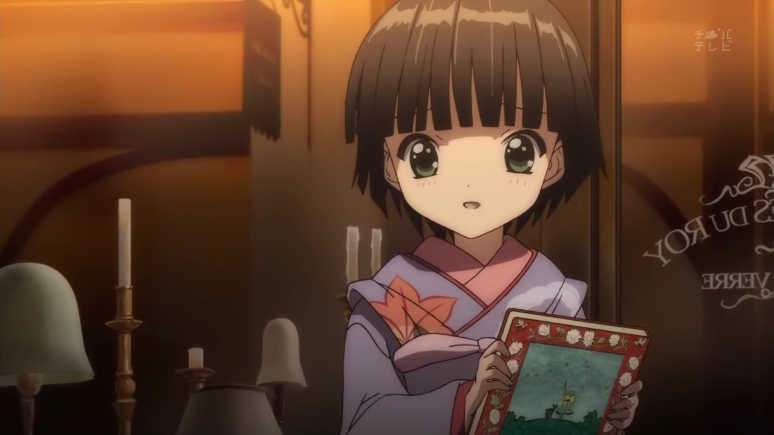
It’s also really nice that in the middle of all that confusion Claude decided to buy Yune that little book. Random acts of kindness should never be overthought. One often does not know when you’re hurting someone more than it could seem – as Claude did with Yune’s Kimono. So the kindness instinct should be indulged whenever and wherever possible. It’s never a bad thing to overcompensate on benevolence.
And alright! It’s been a long post I think and I’m going to just pen-off here before I lose myself and continue waxing lyrical over kindness and understanding and how I love shows like these to bits. So for those of you who stuck with me to the very end here, have one final congratulatory Yune-smile!
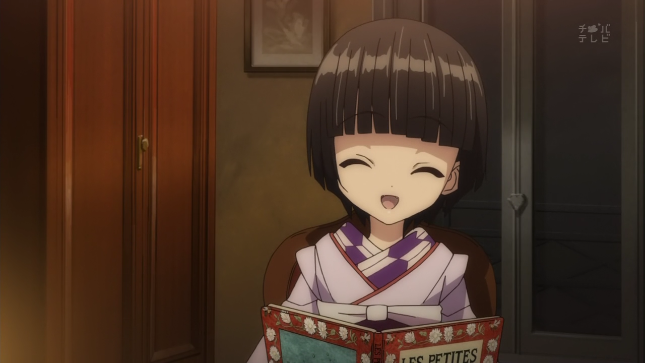
“So Yune, if you already can speak French, you don’t need that book anymore do you?”
“No. I’ve promised Claude-sama to never get rid of my precious things again!”
D’awwwwwww teh cheek!

GradeMiners
The original text is the most powerful and the biggest factor on the way to your success. Our specialists have a lot of effective and interesting ideas and know how to approach them from a different perspective.
LunwenTop
Whether it’s a master’s thesis, undergraduate assignment, or course paper, they can deliver high-quality academic papers. Secondly, ghostwriting services https://www.lunwentop.net/ emphasize attention to detail and adherence to standards. They deeply understand school requirements and formatting standards, ensuring that each paper complies with academic norms and language requirements.